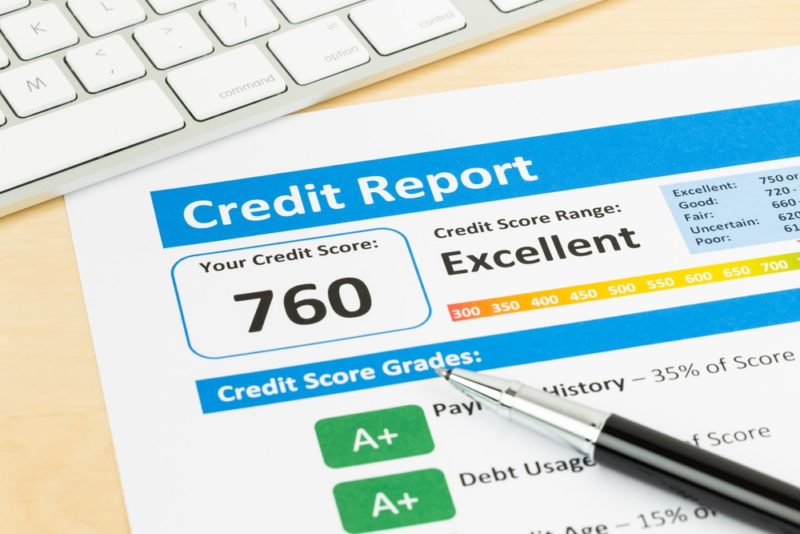
Credit reports can be multiple pages, so it may be difficult to know where to begin or what to look for when you read a credit report. Your credit score is just a snapshot of your full credit report and doesn’t tell the entire story.
Your credit report is what creditors and lenders will use to determine your approval odds for a loan or credit account. You may have bad credit and not know what to look for to fix it. That’s what makes it so important to know how to read a credit report. It is also equally important to monitor your credit profile often.
Your credit report will read as follows:
- Personal information
- Consumer statements
- Account information
- Public records
- Inquiries
What's Ahead...
What Personal Information is in a Credit Report?
Your personal information will be the first section of your credit report, and it will include the following information:
- Full legal name
- Current and previous addresses
- Date of birth
- Social security number
- Employment information
- Phone number
- Other known aliases, names, or maiden names
Personal information is the first area of the credit report that you should review. Reports say that one in five people will find an error on their credit report, making errors more common than people realize.
Creditors and lenders provide the credit bureaus with your personal information that is associated with your account. Sometimes an error can be as simple as a data entry mistake when the account was created. Other times, the error may be more serious, like a fraudulent account created in your name.
When reviewing your personal information section, carefully review all the details about your personal information to ensure it is accurate. It is all this information combined that makes up your credit score.
Errors to Look for in Your Personal Information Section
- Names not associated with you or your accounts. If you notice any names on your credit report that are not associated with you or any of your accounts, you should dispute them immediately with the credit bureau. This error may be a simple data entry mistake, or it may be that you are a victim of identity theft or fraud.
- Incorrect social security number. Make sure the social security number listed on your account is yours. If you notice the number is incorrect, notify the credit bureau immediately by filing a dispute. Incorrect social security numbers are another way to detect fraudulent activity and may signal that you are a victim of identity theft.
- Incorrect addresses. Your personal information will have your previous and current addresses listed, and these addresses should be recognizable to you. If you notice that any of the addresses listed in your personal information is not correct, you should dispute it with the credit bureau. Scammers will use their mailing addresses to have documents sent to them and away from you, so it’s important to review all the addresses in your personal information section.
- Incorrect phone numbers. Another way that scammers keep you from finding out you have been hacked is by providing their phone numbers to creditors and lenders when applying for an account. Creditors and lenders will contact the phone number provided regardless of the name on the account. Until you run a credit report and verify your personal information, you may not realize you have been a victim of identity theft.
What are Consumer Statements?

Consumer statements are your opportunity to add a 100-word statement to your report about a specific account or item on your credit report that you wish to explain in further detail. Consumer statements help lenders and creditors better understand a negative item, denied dispute, or any part of your credit report that needs additional information.
If you have filed a dispute with the credit bureau and the dispute was denied, you can provide a consumer statement. The credit bureau will then add the consumer statement to your report.
You can also add a consumer statement for a negative item on your credit report. The consumer statement won’t remove the negative item or improve your credit score, but it may help creditors and lenders understand the circumstances that led to the negative item.
What Account Information is on a Credit Report?
All credit cards, lines of credit, and loans will be listed in the account information section. If you are not sure what a a full credit report is, read about that here.
The account information will include the following information:
- Account name
- Account number
- Type of account
- Balance
- Date opened
- Status: open/closed
- Credit limit
- Payment history
This section will show all the activities related to all your accounts. If you have increased a credit limit, changed the payment due date, or missed a payment, it is all reported in this section.
It’s important to review this section to make sure all the reported information is accurate. Again, something as simple as a data entry error can make your credit score lower than it should be, so you should dispute any error you find in the account information section to the credit bureau that has reported it.
What Public Records are on a Credit Report?

Public records are reported to the credit bureau by court systems, municipalities, and other government agencies only if they pertain to your financial accounts. Tax liens, civil judgments, and bankruptcies may show up in the public record section of your credit report. Bankruptcies will stay on your credit report for 7 to 10 years.
What are Credit Inquiries on a Credit Report?
When you apply for a loan or a credit card, the lender or creditor will run your credit report to determine if you are a candidate for approval. This is known as a hard credit inquiry.
Hard credit inquiries can impact your credit score, especially if many hard inquiries show up in a short time. Hard inquiries can stay on your credit report for up to two years, so it’s important to check this section to make sure that you recognize all credit inquiries.
If there are credit inquiries you don’t recognize, it can signal that someone has attempted to use your social security number and personal information, and you should dispute it immediately.
What do the Numbers Mean on a Credit Report?
Paul Martinez is the founder of BendingDestiny.com. He is an expert in the areas of finance, real estate, and eCommerce.
Join him on BendingDestiny.com to learn how to improve your financial life and excel in these areas. Before starting this blog, Paul built from scratch and managed two multi-million dollar companies. One in the real estate sector and one in the eCommerce sector.


